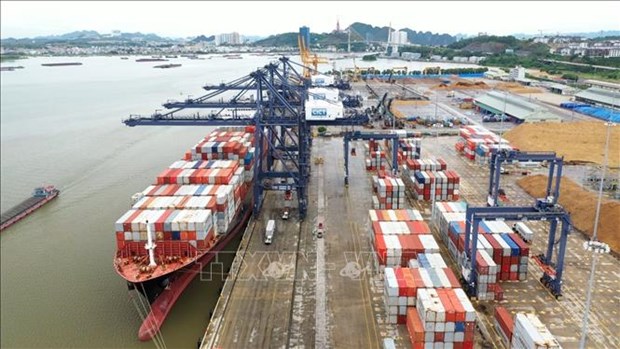Vietnamese ports among top 50 effective container seaports
Three Vietnamese seaports have been named among the top 50 of the Container Port Performance Index (CPPI) launched by the World Bank and IHS Markit.
 |
| The Cai Lan International Container Terminal in the northern province of Quang Ninh ranked at 46th in the Container Port Performance Index launched by World Bank and IHS Markit. (Photo:VNA) |
Cai Lan International Container Terminal in the northern province of Quang Ninh ranked at 46th while Hai Phong Port and Cai Mep International Terminal in the southern province of Ba Ria-Vung Tau ranked at 47th and 49th, respectively.
Yokohama port in Japan has been ranked as the most efficient port in the world, followed by Saudi Arabia's King Abdullah Port. Other ports in the top five are Chiwan, part of Shenzhen's port in Guangdong province, Guangzhou port of China and Taiwan's Kaoshiung port.
Ports in Asia, the Middle East and North Africa dominated the top 50 spots, while four US ports cracked the top 100 - Philadelphia (83rd), the Port of Virginia (85th), New York & New Jersey (89th) and Charleston, South Carolina (95th).
The COVID-19 pandemic has disrupted trade around the globe, snarling trade and exposing the frailty of a supply chain of goods. The US is the world's biggest consumer, importing goods valued at roughly 2.5 trillion USD a year.
Southern California's Los Angeles and Long Beach ports handle the most ocean cargo of any ports in the US, but are some of the least efficient in the world, according to the ranking which reviews 351 container ports around the globe.
Los Angeles was ranked 328th, behind Tanzania's Dar es Salaam and Alaska's Dutch Harbor while the port of Long Beach was at 333rd, behind Turkey's Nemrut Bay and Kenya's Mombasa.
The CPPI is based on the total port hours per ship call, with this being defined as the elapsed time between when a ship reaches a port to its departure from the berth after completing its cargo exchange.
Source: VNA